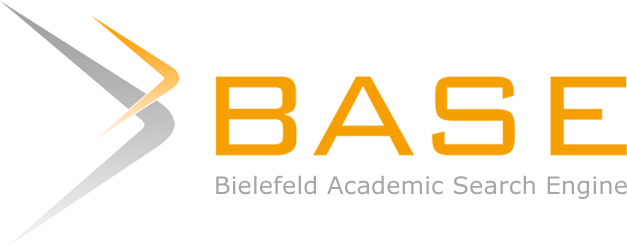Abstract
Indonesia's ranking in the 2021 Global Innovation Index, which ranks 87th out of 132 countries, shows that efforts to increase innovation are still needed. Various Ministries in Indonesia annually hold innovation competitions for the units under them to encourage quality improvement and familiarize the best practice culture for public service providers. This study aims to analyze the effect of regulatory focus, inclusive leadership, and perceived organizational support on innovative work behavior of employees at the Head Office of the Directorate General of Revenue (DGT) mediated by work engagement. The data collection method used a questionnaire given to 308 respondents online and processed using Structural Equation Modeling. The results of the study show that Promotion Focus, Prevention Focus, and Perceived Organizational Support have a positive effect on Work Engagement. Work Engagement also mediates these three variables on Innovation Work Behavior. However, Inclusive Leadership has no effect on Work Engagement nor is it mediated by Work Engagement onInnovation Work Behavior.
References
Afsar, Bilal & Al-Ghazali, Basheer & Ehtisham, Sadia & Javed, Farheen. (2020). Cultural intelligence
and innovative work behavior: the role of work engagement and interpersonal trust. European
Journal of Innovation Management. 24 (4), pp. 1082-1109
Aldabbas, H., Pinnington, A., & Lahrech, A. (2021). The influence of perceived organizational support
on employee creativity: The mediating role of work engagement. Current Psychology, 1-15.
Asghar, M., Gull, N., Tayyab, M., Zhijie, S., & Tao, X. (2020). Polychronicity at work: Work engagement
as a mediator of the relationships between job outcomes. Journal of Hospitality and Tourism
Management, 45, 470-478.
Asghar, M., Tayyab, M., Gull, N., Zhijie, S., Shi, R., & Tao, X. (2021). Polychronicity, work engagement,
and turnover intention: The moderating role of perceived organizational support in the hotel
industry. Journal of Hospitality and Tourism Management, 49, 129-139.
Andrews, M. C., Kacmar, K. M., & Valle, M. (2016). Regulatory focus and perceived self-value as
predictors of work engagement. Journal of Applied Management and Entrepreneurship, 21(1), 5.
Bannay, D. F., Hadi, M. J., & Amanah, A. A. (2020). The impact of inclusive leadership behaviors
on innovative workplace behavior with an emphasis on the mediating role of work engagement.
Problems and Perspectives in Management, 18(3), 479.
Bao, Ping & Zengrui, Xiao & Bao, Gongmin & Noorderhaven, Niels. (2021). Inclusive leadership
and employee work engagement: a moderated mediation model. Baltic Journal of Management.
ahead-of-print. 10.1108/BJM-06-2021-0219.
Blau, P. M. (1964). Exchange and power in social life. New York: Wiley.
Bakker, Arnold B., Simon L. Albrecht & Michael P. Leiter (2011) Work engagement: Further reflections
on the state of play, European Journal of Work and Organizational Psychology, 20:1, 74-88
Brockner, J., Higgins, E. T., & Low, M. B. (2004). Regulatory focus theory and the entrepreneurial
process. Journal of Business Venturing, 19(2), 203–220.
Budiastuti, D., & Bandur, A. (2018). Validitas dan reliabilitas penelitian. Jakarta: Mitra Wacana Media.
Carmeli, A., Reiter-Palmon, R., & Ziv, E. (2010). Inclusive leadership and employee involvement in
creative tasks in the workplace: The mediating role of psychological safety. Creativity Research
Journal, 22(3), 250–260.
Cenkci, A.T., Bircan, T. and Zimmerman, J. (2020), “Inclusive leadership and work engagement: the
mediating role of procedural justice”, Management Research Review, Vol. 44 No. 1, pp. 158-180.
Chen, C.-J. & Huang, J.-W. (2009) Strategic Human Resource Practices and Innovation Performance—
The Mediating role of Knowledge Management Capacity. Journal of Business Research,
62, 104-114.
Côté, K., Lauzier, M., & Stinglhamber, F. (2021). The relationship between presenteeism and job
satisfaction: A mediated moderation model using work engagement and perceived organizational
support. European Management Journal, 39(2), 270-278.
Dai, Y. D., Altinay, L., Zhuang, W. L., & Chen, K. T. (2021). Work engagement and job burnout?
Roles of regulatory foci, supervisors’ organizational embodiment and psychological ownership.
Journal of Hospitality and Tourism Management, 46, 114-122.
Dheyaa, F. B., Hadi, M. J., & Ahmed, A. A. (2020). The impact of inclusive leadership behaviors
KETERBATASAN PENELITIAN
Penelitian ini mencakup pada sampel yang dilakukan
pada Kantor Pusat Direktorat Jenderal
Pendapatan di Daerah Khusus Ibukota Jakarta
yang memiliki tugas dan fungsi pada administrasi
perpajakan, sehingga hasil uji penghitungan
merupakan gambaran yang didapat dari
sampel yang turut serta dalam penelitian.
A. N. Hidayat, M. A. A. Prabawa, Y. S. M. Eta, dan A. Satrya / Jurnal Manajemen dan Usahawan Indonesia © Mei-Juni (2023) Vol. 46 No. 1 59
on innovative workplace behavior with an emphasis on the mediating role of work engagement.
Problems and Perspectives in Management, 18(3), 479-491.
Eisenberger, R., Rhoades Shanock, L., & Wen, X. (2020). Perceived organizational support: Why
caring about employees counts. Annual Review of Organizational Psychology and Organizational
Behavior, 7, 101-124.
Edmondson, A. C. (2004). Psychological safety, trust, and learning in organizations: A group-level
lens. In R. M. Kramer & K. S. Cook (Eds.), Trust and distrust in organizations: Dilemmas and
approaches. New York: Russell Sage Foundation.
Fatoni, Agus. (2021). A to Z inovasi daerah: selalu ada ruang untuk berinovasi. (2021). Indonesia:
Bina Praja Press.
Fredrickson, B. L. (2001). The role of positive emotions in positive psychology: The broaden-andbuild
theory of positive emotions. American Psychologist, 56(3), 218-226.
Hair, J. F., Ringle, C. M., & Sarstedt, M. (2011 ). PLS-SEM: Indeed a silver bullet. Journal of Marketing
Theory and Practice, 19, 139-151.
Hair, J.F., Sarstedt, M. and Ringle, C.M. (2019), "Rethinking some of the rethinking of partial least
squares", European Journal of Marketing, Vol. 53 No. 4, pp. 566-584.
Higgins ET, Friedman RS, Harlow RE, Idson LC, Ayduk ON, Taylor A. (2001). Achievement orientations
from subjective histories of success: Promotion pride versus prevention pride. European
Journal of Social Psychology, 6.
Higgins, E. T., Roney, C. J., Crowe, E., & Hymes, C. (1994). Ideal versus ought predilections for approach
and avoidance distinct self regulatory systems. Journal of Personality and Social Psychology,
66(2), 276–286.
Higgins ET. 1997. Beyond pleasure and pain. American Psychologist 52: 1280±1300.
Higgins ET. 1998. Promotion and prevention: Regulatory focus as a motivational principle. In Advances
in Experimental Social Psychology, 30, 1-46.
Henseler, J. (2021). Composite-Based Structural Equation Modeling: Analyzing Latent and Emergent
Variables. New York: The Guilford Press. Retrieved from www.guilford.com/MSS Experimental
Social Psychology (Vol. 30), Zanna MP (ed.). Academic Press: New York; 1±46.
Janssen, O. (2000). Job demands, perceptions of effort-reward fairness, and innovative work. Journal
of Occupational and Organizational Psychology, 73(3), 287–302.
Jason, V., & Geetha, SN. (2019). Regulatory focus and innovative work behavior: The role of work
engagement. Current Psychology, 40(6), 2791-2803.
Javed, B., Abdullah, I., Zaffar, M. A., ul Haque, A., & Rubab, U. (2019). Inclusive leadership and
innovative work behavior: The role of psychological empowerment. Journal of Management &
Organization, 25(4), 554-571.
Kwon, K., & Kim, T. (2020). An integrative literature review of employee engagement and innovative
behavior: Revisiting the JD-R model. Human Resource Management Review, 30(2), 100704.
Kleysen, R., & Street, C. (2001). Towards a Multi-dimensional measure of individual innovative behavior.
Journal of Intellectual Capital, 2(3), 284–296.
Lai, J., Ma, S., Wang, Y., Cai, Z., Hu, J., Wei, N., Li, R. (2020). Factors Associated With Mental
Health Outcomes Among Health Care Workers Exposed to Coronavirus Disease 2019. JAMA,
3(3), 1–12.
Leung, Shing On (2011) A Comparison of Psychometric Properties and Normality in 4-, 5-,
6-, and 11-Point Likert Scales, Journal of Social Service Research, 37:4, 412-421, DOI:
10.1080/01488376.2011.580697
Lanaj, K., Chang, C.-H., & Johnson, R. E. (2012). Regulatory focus andwork-related outcomes: A
review and meta-analysis. Psychological Bulletin, 138(5), 998–1034.
Najeemdeen, I. S. (2018). Perceived organizational culture and perceived organizational support on
work engagement. In Perceived organizational culture and perceived organizational support on
60 A. N. Hidayat, M. A. A. Prabawa, Y. S. M. Eta, dan A. Satrya / Jurnal Manajemen dan Usahawan Indonesia © Mei-Juni (2023) Vol. 46 No. 1
work engagement: Najeemdeen, Iliyasu Shiyanbade.
Neubert, M. J., Kacmar, K. M., Carlson, D. S., Chonko, L. B., & Roberts, J. A. (2008). Regulatory
focus as a mediator of the influence of initiating structure and servant leadership on employee behavior.
Journal of Applied Psychology, 93(6), 1220–1233.
Ringle, C. M., Sarstedt, M., Hult, G. T. M., Hair, J. (2016). A Primer on Partial Least Squares Structural
Equation Modeling (PLS-SEM). United States: SAGE Publications.
Schaufeli, W., Salanova, M., Gonza ́lez-Roma, V., & Bakker, A. B. (2002). The measurement of engagement
and burnout: A two sample confirmatory factor analytic approach. The Journal of Happiness
Studies, 3, 71–92.
Schaufeli, W. B., Bakker, A. B., & Salanova, M. (2006). The measurement of work engagement with
a short questionnaire a crossnational study. Educational and Psychological Measurement, 66(4),
701–716.
Scott, S. G., & Bruce, R. A. (1994). Determinants of innovative behavior: A path model of individual
innovation in the workplace. Academy of management journal, 37(3), 580-607.
Hosseini, Soheila & Zahra Rastegar Haghighi Shirazi | Shijing Xu (Reviewing editor) (2021)Towards
teacher innovative work behavior: A conceptual model, Cogent Education, 8:1,
Strom, D. L., Sears, K. L., & Kelly, K. M. (2014). Work Engagement: The Roles of Organizational
Justice and Leadership Style in Predicting Engagement Among Employees. Journal of Leadership
& Organizational Studies, 21(1), 71–82.
Syairozi, M. I., & Rosyad, S. (2022). Inovasi Daun Lontar Untuk Meningkatkan Produktivitas Masyarakat
Desa Lawanganagung. Jurnal Pengabdian kepada Masyarakat Nusantara, 3(1), 131-136.
Wallace, J. C. (2005). A multilevel examination of occupational safety:Regulatory focus as an explanatory
link between climate, conscientiousness, and performance. Dissertation Abstracts
International:Section B. Sciences and Engineering, 65(7-B), 3760.
Wijanto, S.H. (2015). Metode Penelitian menggunakan Structural Equation Modeling dengan Lisrel
9 : Jakarta : LIP FEIU.
WIPO (2021). Global Innovation Index 2021: Tracking Innovation through the COVID-19 Crisis.
Geneva: World Intellectual Property Organization.
Bahasa Abstract
Peringkat Indonesia dalam Global Innovation Index tahun 2021 yang menduduki peringkat ke 87 dari 132 negara menunjukkan bahwa upaya peningkatan inovasi masih diperlukan. Berbagai Kementerian di Indonesia setiap tahunnya mengadakan kompetisi inovasi bagi para unit di bawahnya untuk mendorong peningkatan kualitas dan membiasakan budaya praktik terbaik bagi para penyelenggara pelayanan publik. Penelitian ini bertujuan untuk menganalisa pengaruh regulatory focus, inclusive leadership, dan perceived organizational support terhadap innovative work behaviour pegawai Kantor Pusat Direktorat Jenderal Pendapatan (DJP) yang dimediasi oleh work engagement. Metode pengumpulan data menggunakan kuesioner yang diberikan kepada 308 responden secara daring dan diolah dengan menggunakan Structural Equation Modelling. Hasil penelitian menunjukkan bahwa Promotion Focus, Prevention Focus, dan Perceived Organizational Support berpengaruh secara positif terhadap Work Engagement. Work Engagement juga memediasi ketiga variabel tersebut terhadap Innovation Work Behavior. Namun, Inclusive Leadership tidak berpengaruh terhadap Work Engagement dan juga tidak dimediasi oleh Work Engagement terhadap Innovation Work Behavior.
Recommended Citation
Hidayat, Apritama Nur; Prabawa, Made Andre Arya; M Eta, Yuli Safriah; and Satrya, Aryana
(2023)
"Perilaku Kerja Inovatif Pegawai Negeri Sipil: Pengaruh Regulatory Focus, Inclusive Leadership dan Perceived Organizational Support yang dimediasi oleh Work Engagement,"
Jurnal Manajemen dan Usahawan Indonesia: Vol. 46:
Iss.
1, Article 4.
Available at:
https://scholarhub.ui.ac.id/jmui/vol46/iss1/4







